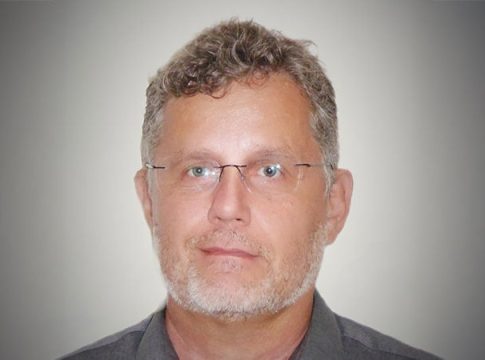Understanding Mental Health Care in Prisons: Insights from Dr. Gregor Gross
In a recent interview with Coliquio, Dr. Gregor Gross, a psychiatrist at Straubing Prison in Germany, shared invaluable insights into the complexities of providing psychiatric care for inmates. His reflections highlight the urgent need to address mental health within the prison system, where many individuals face both societal neglect and acute psychological challenges.
The Need for Specialized Psychiatric Units
Mental health issues are alarmingly common among incarcerated individuals. Studies indicate that nearly 50% of prisoners grapple with substance use disorders, while depression affects about 25% of male inmates and up to 33% of female inmates. Approximately 4% suffer from psychotic disorders, and around 10% have ADHD. At Straubing Prison, it is revealing that around half of the inmates require ongoing psychiatric care, underscoring the need for specialized units within correctional facilities.
Preexisting Conditions and Adjusting to Incarceration
Most inmates enter prison with prior mental health conditions, often stemming from long-term issues. For first-time offenders, however, the experience can trigger temporary adjustment disorders, typically appearing as short-term depressive symptoms. This distinction is crucial; while the prison environment may not directly cause severe mental health problems, it can exacerbate existing conditions, particularly for those struggling with financial issues related to minor offenses.
Vulnerable Populations and Recidivism
Certain groups within the prison population are particularly vulnerable, such as those sentenced for non-violent, minor offenses. Often unable to pay fines due to underlying psychiatric or social challenges, these individuals can become trapped in a cycle of repeated incarceration. This “revolving-door” effect not only fails to address the root causes of their behavior but also magnifies their existing mental health struggles, highlighting the systemic failures within the justice system.
Addressing Suicide Risks
The suicide rate in prisons is notably high, raising serious concerns. At Straubing, systematic screenings for suicide risks are implemented during intake and at critical periods such as post-sentencing or pre-release. These moments can bring heightened anxiety and potential crises, making proactive mental health interventions essential. Immediate psychiatric support is available for those identified as high-risk, supplemented by monitored cells to ensure safety.
The State of Psychiatric Care in Prisons
Regrettably, psychiatric services within the German prison system fall short of what is needed. With only about 30 prison psychiatrists for approximately 60,000 inmates, the ratio becomes overwhelmingly inadequate—over 1,000 cases per doctor. Filling these vacancies remains a challenge due to a shortage of qualified professionals, leading to reliance on general medical staff without the necessary psychiatric training, which is far from ideal.
Potential Solutions and Future Directions
Exploring solutions, Dr. Gross emphasizes the potential benefits of integrating telepsychiatry into prison healthcare. While not a complete substitute for face-to-face interaction, it can provide essential support when in-person consultations are challenging. Furthermore, raising awareness among medical students about prison psychiatry could attract more specialists to this critical field.
Another vital aspect is recognizing the unique needs of inmates from migration backgrounds, many of whom arrive in prison without prior access to adequate mental health care. In these settings, early diagnosis can lead to significant improvements in their overall well-being.
Conclusion
The conversation around mental health in prisons is one that necessitates deep understanding, empathy, and systemic change. By prioritizing the mental health needs of incarcerated individuals, society can begin to address the inequities that exist in both healthcare and the justice system. It’s a journey towards compassion that can lead not only to healing for those often overlooked but also to broader societal improvements. Through education, awareness, and enhanced care, we can foster an environment that values mental wellness for all.

Covers wellness, nutrition, mental health, and daily life tips.
Bio: Talia brings a background in health journalism and holistic living to help readers live better, one tip at a time.

